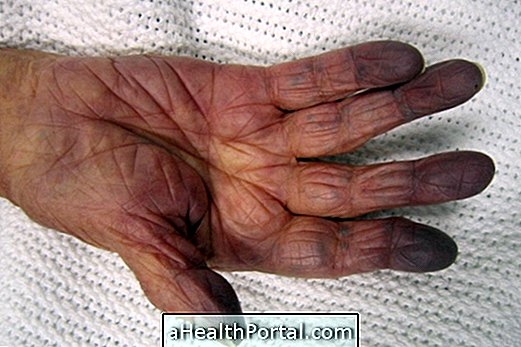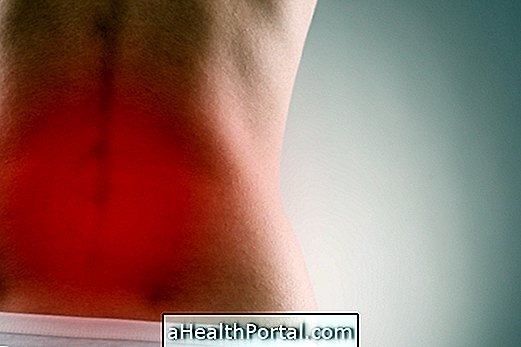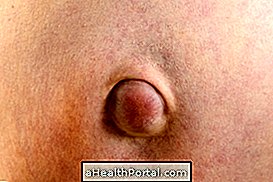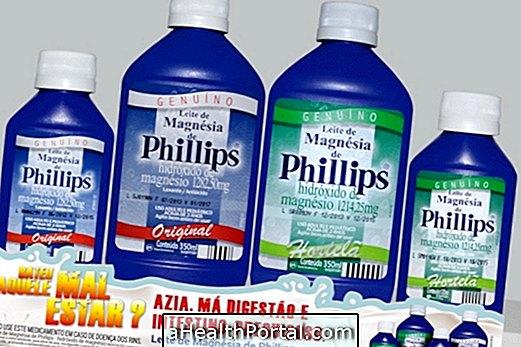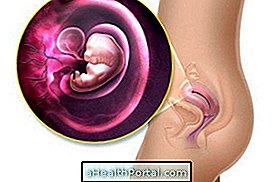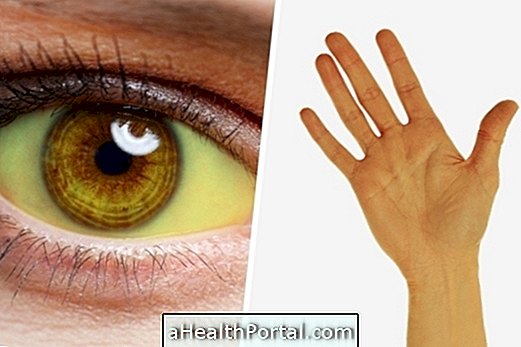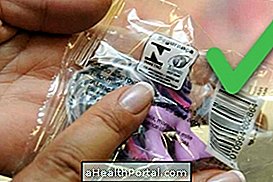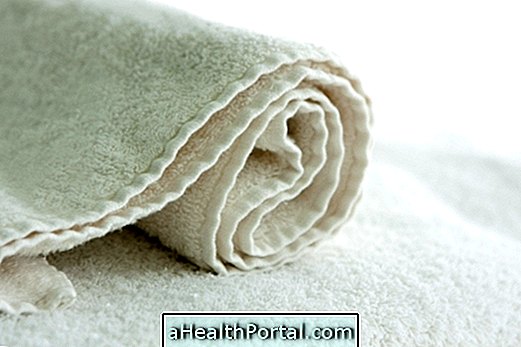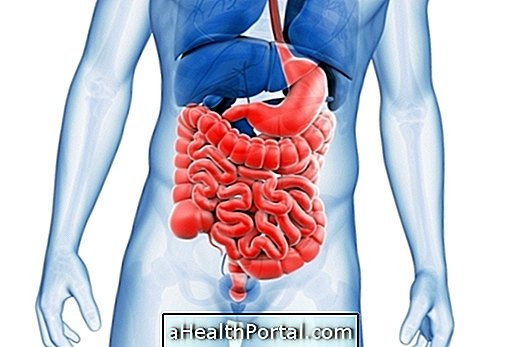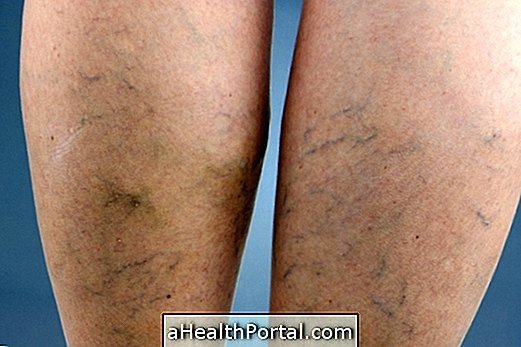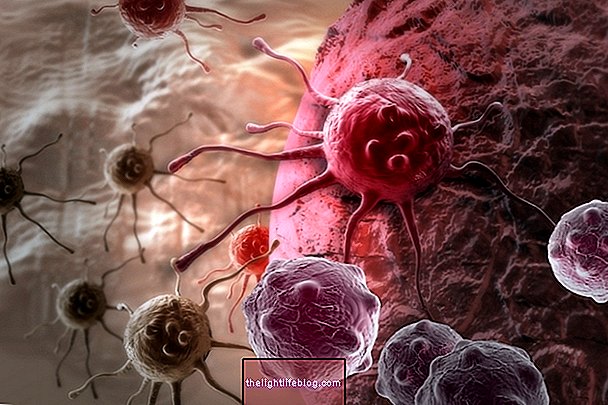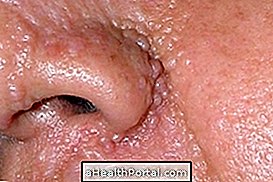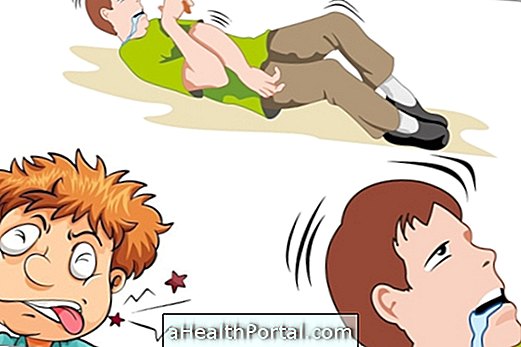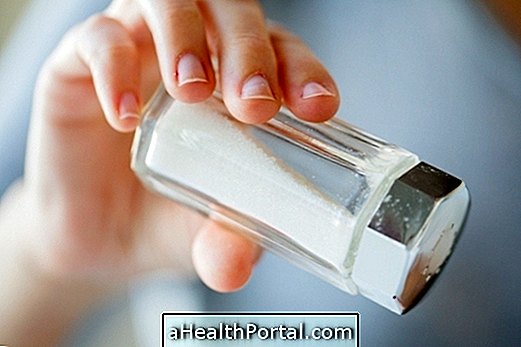Wounds in the mouth can be caused by canker sores, small strokes or irritations of this region, or by viral or bacterial infections. Cold sores are an example of a common infection caused by viruses, which causes small blisters that hurt and burn in the region of the lips. To learn more about this infection, check out the symptoms of herpes and how to cure it.
In some rare cases, especially when the ulcer persists for more than 1 week, they may also indicate more serious conditions, such as lichen planus, syphilis, oral oral cancer, lupus or ulcers caused by reaction to certain medications such as Alendronate, inflammatory agents or chemotherapies, for example.
When the mouth sore appears, it is necessary to seek care from the doctor or dentist, so that they can evaluate the characteristics of the lesion and identify the reason for the change. Usually, these lesions disappear in about 7 to 10 days, when their cause is resolved, however, in more complicated situations they may need treatment with medicines such as antibiotics, corticosteroids or immunosuppressants, depending on each case.
Thus, the main causes of mouth sores and what to do in each case are:
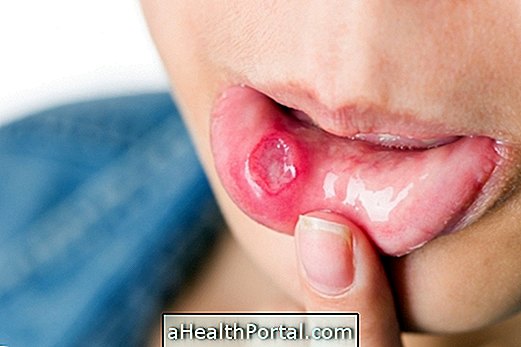
1. Thrush
Acid, scientifically called aphthous stomatitis, is characterized by the appearance of one or more rounded ulcers that are usually small and rounded. It can appear anywhere in the mouth, such as lip, tongue, cheek, palate or even throat, causing a lot of pain and difficulty eating and talking.
The appearance of the cold can be related to bites, consumption of citrus foods, altered pH of the mouth due to poor digestion, lack of vitamins or allergy to medicines and even stress. Already in cases of recurrent canker sores, although its cause is not fully explained, it may be related to imbalances of the immune system.
- How to treat : The cold sore can heal without the need for medication, and it is indicated to remove its triggering causes. In some cases, especially when the sore is uncomfortable and painful, the use of anesthetic ointments, such as benzocaine, topical corticosteroids, such as Triamcinolone or Fluocinonide, or healing agents such as Policresulene may be indicated.
Learn about the best remedies for treating cold sore and home remedies.
2. Cold Sores
Virus infections are one of the main causes of mouth sores, mainly caused by cold sores. This infection is acquired through contamination by the herpes simplex virus due to contact with secretions from the active lesions of other people.
Cold sore lesions are characterized by small blisters that are painful and may be accompanied by redness, itching and burning, which usually disappear in about 10 to 14 days.
- How to treat : Your doctor may advise the use of antiviral drugs, such as acyclovir tablets or ointments, to speed up the healing process. To relieve the pain or discomfort, you can also indicate preparations containing anesthetics.
Check out the video below for some herpes cure tips:

Other types of viruses that can also cause mouth sores are HIV, Coxsackie virus, Epstein-barr virus and Cytomegalovirus (CMV), for example. In addition, injuries can be caused by bacteria, such as those that cause gingivitis, syphilis or soft cancer, for example. Necrotizing ulcerative gingivitis is a more severe form of gingivitis, which can cause large lesions in the gingival region. Learn more about what is and how to treat necrotizing ulcerative gingivitis.
3. Injured
Small mouth injuries can be formed day in and day out, and often their cause may go unnoticed. Some examples are those formed by accidental bites, an improperly fitted prosthesis, orthodontic appliances or even by exaggerated brushing.
Some people can cause mouth sores by consuming very hot or cold foods, causing a heat burn, which is more common on the tongue or on the palate. In addition, an irritation may also arise from mucosal contact with very acidic or basic substances, such as acetylsalicylic acid, trichloroacetic acid or some oral care products, for example.
- How to treat : This type of wound usually heals in a few days if the cause has been removed. The dentist may indicate an ointment that facilitates healing, such as Policresulene, for example.
In cases of frequently occurring injuries, it is important to note if there is any habit, such as biting and scratching or if there is any use of the product that may be causing the problem.

4. Other diseases
Some of the systemic diseases related to the appearance of mouth sores include:
- Behçet's disease;
- Lichen planus;
- Pemphigus;
- Erythema multiforme;
- Lupus erythematosus;
- Celiac disease,
- Crohn's disease;
- Cancer.
Autoimmune and gastrointestinal diseases are worrisome causes of mouth sores, and are usually longer lasting and associated with other symptoms, such as fever, weight loss, tiredness, diarrhea, or other injuries to the body, such as the genital area.
- How to treat : The treatment of these diseases is done by the rheumatologist or gastroenterologist, with specific medications, which may include corticoids, immunosuppressants or chemotherapy, for example.
In addition, mouth sores may be caused by reactions to medications, which cause inflammation in the mucous membrane of the mouth and may cause ulcerations. Some medications associated with this effect are Alendronate, anti-inflammatories, chemotherapies, Penicillamine, Sertraline, Losartan, Captopril or Indinavir, for example. The treatment is done with the removal or replacement of these medicines by the doctor.


